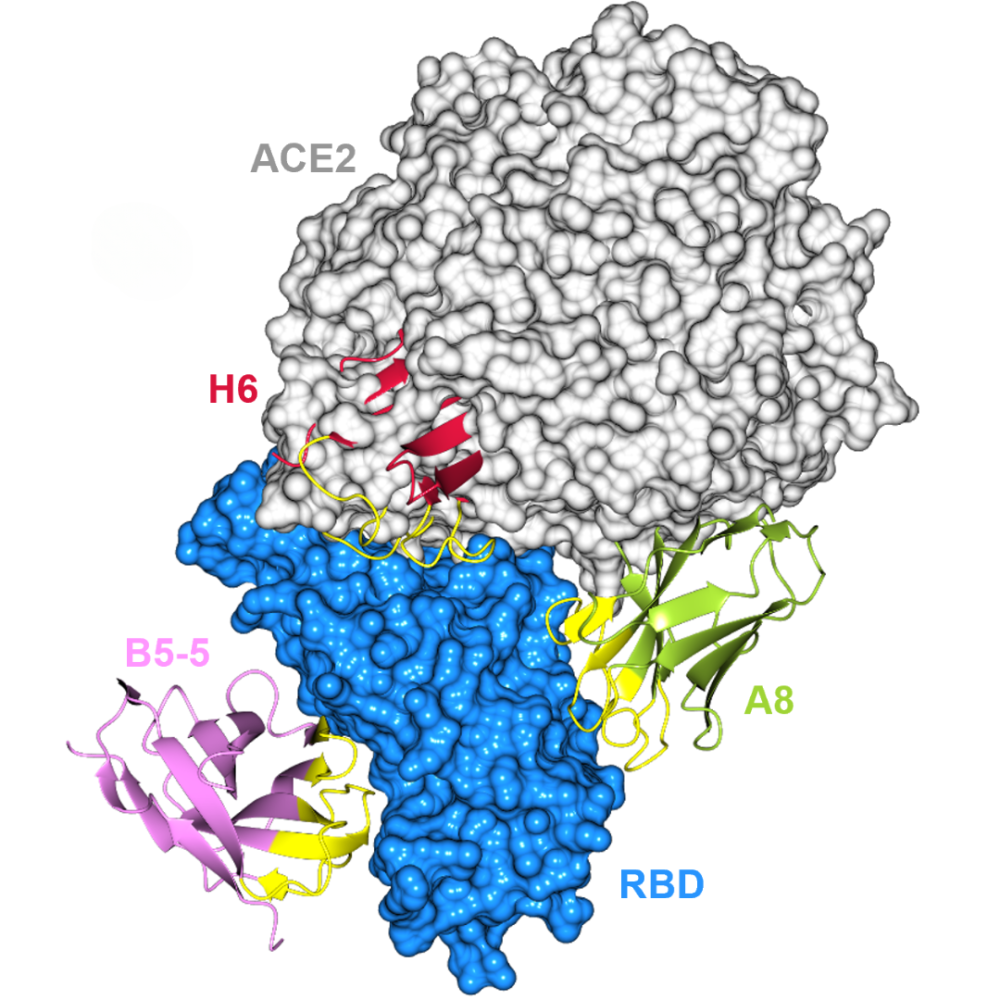Llama derived nanobodies neutralising new strains of coronavirus.
Specific nanobodies have been isolated that can neutralise Omicron strains of Covid-19. This research, conducted by scientists at the Rosalind Franklin Institute and the Universities of Oxford, Liverpool and Zurich, has been published in Open Biology.
The landscape of SARS-CoV-2 variants is continuously changing which poses a significant challenge to the development of effective vaccines and treatments for Covid-19. Therefore, in the ‘arms race’ with the virus, there is an ongoing need to identify new biologics for the prevention or treatment of SARS-CoV-2 infections.
This paper describes the isolation of single domain antibodies, or nanobodies, generated from llamas immunized with spike proteins of the virus. These viral proteins form structures that protrude from the surface of the virus and play the key role in the entry of viruses into cells, the first step in infection.
The study showed how and where these nanobodies bound to Omicron strains of SARS-CoV-2 and blocked the virus from infecting cells, raising the prospect of new nanobodies able to treat these more recent strains of Covid-19.

Professor Raymond Owens, Principal Investigator of the project at the Rosalind Franklin Institute said: “Structural biology has been an essential part of this programme and has showed us how the nanobodies act to disrupt the Omicron spike protein and its binding”.
Professor Owens added: “The next step will be to combine the nanobodies either as a mixture or physically joined together since it is less likely that the virus will escape from two or more different nanobodies at the same time.”
It is important to note that while this study has focused on the prevention and treatment of strains of Covid-19, the generic nature of this technology could enable researchers to use this pipeline for other potential viruses and pathogens. Reusing and repurposing existing nanobody libraries will enable the team to save time when it comes to finding new nanobody based treatments should the next pandemic come along.
Dr Lauren Eyssen, Staff Scientist at the Rosalind Franklin Institute, commented: “This project has enabled the development of our pipeline so we are now able test a large variety of nanobodies in a relatively short period of time and identify those which will be prioritised for testing against any new pathogens.”
